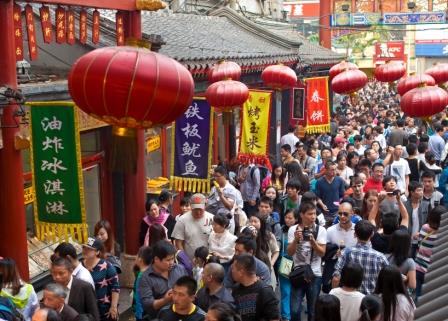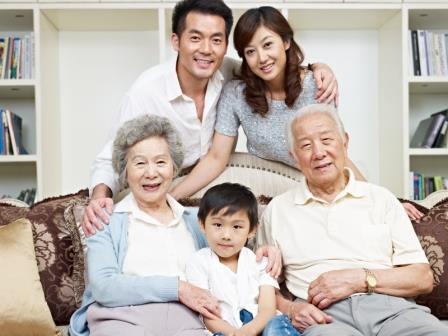The differences between Asian and Australian cultures are many and complex, and go far beyond just language.
Common surprises for Asian people when they arrive in Australia include:
- Bus and trains never come on time!
- Shops and restaurants close too early!
- People are rather casual and friendly – and very relaxed about time and appointments;
- People are generally very expressive!
- Women are tough and strong!
Culture in each Asian country is unique. Even within the same Asian country, people have different values and different ways of behaving and thinking that result from the unique combination of gender, racial, ethnic, religious and geographical backgrounds.
Australian culture is also complex. Australia is more multicultural compared to many Asian countries; again what one believes is Australian culture is not true for the whole country. Australian culture is also fluid, largely due to the increasing number of Australian residents who were born overseas.
Nevertheless, there are some common aspects found in Asian cultures which are clearly different from Australian culture.
Difference in Communication Style
- Asian people are often expected to understand other people’s feelings, thoughts and opinions without asking – and they expect other people to understand their own feelings without actually telling others. This makes it less common for Asian people to express and ask each other’s feelings and thoughts.
- In Australia, people are generally expected to more openly communicate about their feelings, thoughts and opinions to help other people to understand. As a result, Asian people are seen as “reserved”.
Gender Differences
- In Asian culture, traditionally males and older individuals tend to occupy a higher status, with patriarchal husband-wife relationships. Fathers tend to be authoritative figures with little emotional involvement in family life, rather providing the economic and physical needs of the family. In contrast, mother tends to play a passive role in the family, and plays the primary role in looking after domestic chores and raising children. In parenting, verbal and physical punishments are more commonly used as a means of discipline.
- In Australia, there is a relatively egalitarian relationship between males and females – they tend to hold relatively similar responsibilities in terms of housework, taking care of children, and earning an income for the household.
Family Relationships
- Asian parents tend to have a stronger influence over their children. Parents structure their children’s lives for academic and occupational success, such as deciding whether or not children go to college and which career path they should follow. It is common for parents to financially support their children until they join the workforce after completing university or college. Once children are grown, it is common for them to provide both financial and emotional support to their aged parents.
- Australian children are more emotionally and financially independent from their parents, especially after becoming adults. Children tend to decide their own academic and career pathways. It is less common for children to live together and look after their aged parents in the same house.
Difference in Value Systems
- Asian people tend to have more loyalty to authority figures, and respect for ancestors and the elderly. Young people are often expected to highly obedient to older people. There is often only one-way communication from the elderly to younger ones.
- Asian people tend to learn early in life that the family is the primary unit. They are strongly attached to their family and emphasise loyalty and honor to the family, and avoid bringing shame and embarrassment to the family. They tend to have the perception that the behaviour of individual members is a reflection on the entire family group.
- In Asian culture, there is a stronger social stigma attached to mental illness. It is less common for individuals to seek professional support to deal with mental health issues, even when they are severe. It is often handled within the family.
Coping with Cultural Adjustment
For Asians coming to Australia to live, it is important to be aware that the process of cultural adjustment can be stressful and take some time. The stress and anxiety experienced can have a negative impact on psychological, physical, social and spiritual wellbeing. In some cases, stress attributed to cultural adjustment can cause physical and/or mental illness.
It is important to build up both “internal resources” and “external resources” to help ease the transition to life in a new culture.
“Internal resources” are skills and abilities that can help people to better adjust to life situations, such as enhanced problem solving skills, communication and interpersonal skills, stress and anxiety management skills, and time and task management skills.
External resources are support and services which people can use to better cope with life situations, and may include social support networks from friends, workmates, people in the home country, and people from the same country now living in Australia.
Professional sources of external support such as GPs, psychologists, counsellors and social workers, can help the individual to develop better “internal resources”, and assist with coping with new and/or particularly stressful situations over the long-term.
 Author: Yu Takizawa, B Sc (Hons), M Couns, M App Psych.
Author: Yu Takizawa, B Sc (Hons), M Couns, M App Psych.
Yu Takizawa is a registered psychologist, fluent in both English and Japanese. He is particularly interested in offering counselling and psychotherapy services to people who are overcoming cultural differences in Australia.
To make an appointment go to Online Booking. Alternatively, you can call Vision Psychology Brisbane on (07) 3088 5422.

